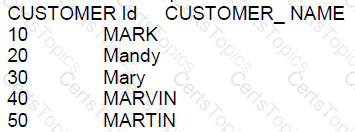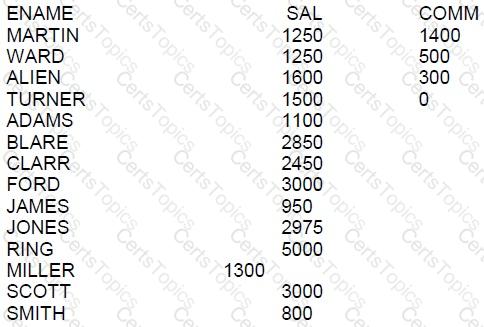Examine the description of the CUSTOMERS table:

Which two SELECT statements will return these results:
CUSTOMER_ NAME
--------------------
Mandy
Mary
Which three actions can you perform only with system privileges?
Examine this partial statement:
SELECT ename, sal,comm FROM emp
Now examine this output:

WHICH ORDER BY clause will generate the displayed output?
Which three statements are true about single-row functions?